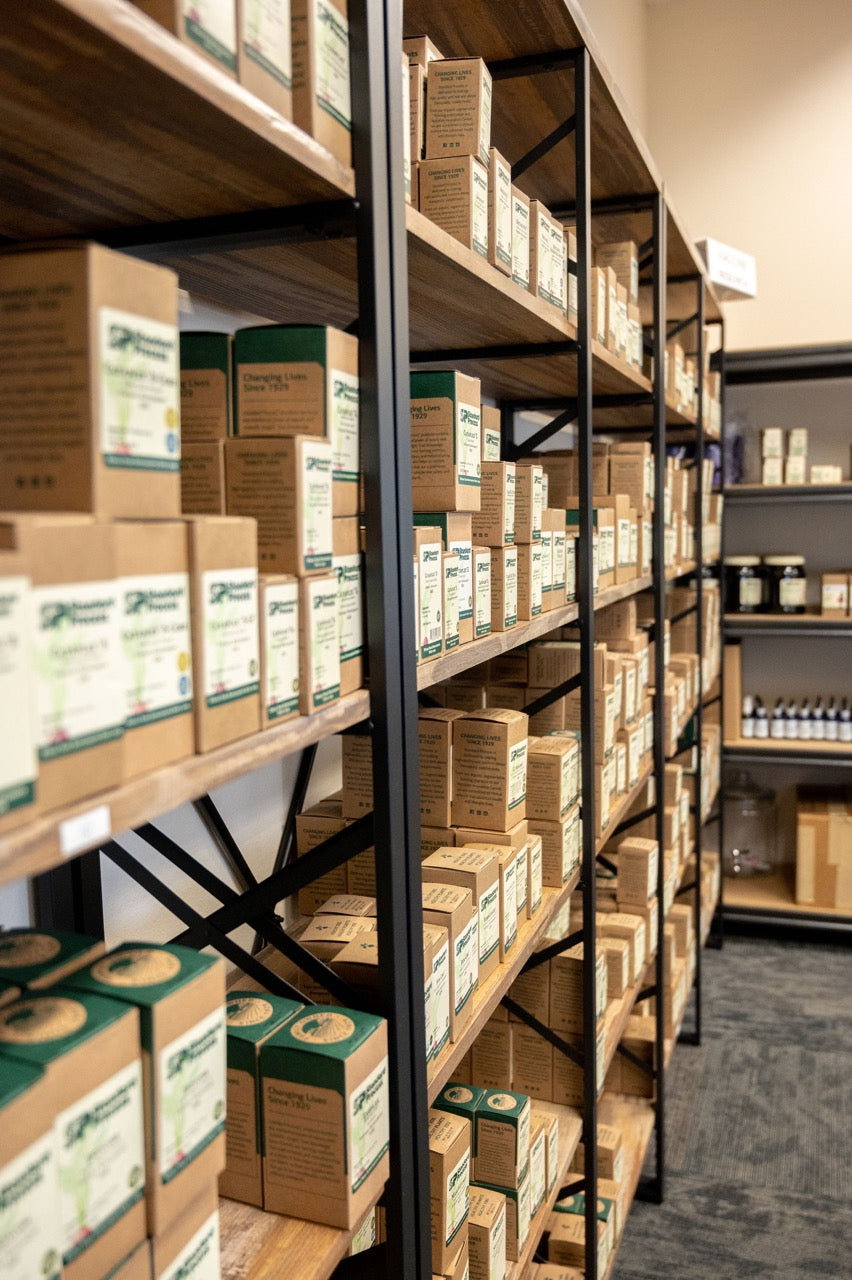Turmeric for Face: Benefits, Precautions, and Potential Side Effects
Applying turmeric on your face can reduce acne and improve skin glow, thanks to its natural anti-inflammatory, antimicrobial, and antioxidant properties. Curcumin, an ingredient in turmeric, is particularly known for healing skin conditions. However, not all reactions to turmeric are beneficial; excessive usage might leave yellow stains and cause irritation, especially for those with sensitive skin or when using products with impurities. Keep this in mind as we dive deeper into the distinct advantages that turmeric offers your skin.
While turmeric is generally safe for topical use, some individuals may experience skin staining or irritation. It's important to conduct a patch test before using turmeric on the face to check for any adverse reactions, and discontinue use if any symptoms of contact dermatitis develop. Always consult with a dermatologist or healthcare provider before incorporating new skincare ingredients.

Benefits of Applying Turmeric on Your Face
Turmeric has been utilized for centuries with remarkable results, and it's not just a kitchen spice. Its natural anti-inflammatory properties make it a promising ingredient for skincare. The main ingredient in turmeric, curcumin, is a potent antioxidant and anti-inflammatory compound that can work wonders for your skin. Let's explore the benefits it offers:
Reduction in Acne
One of the most sought-after benefits of using turmeric on your face is its ability to reduce acne. The anti-inflammatory and antimicrobial properties of turmeric can help alleviate acne symptoms and calm irritated skin.Skin Brightening
Clinical trials have demonstrated that turmeric can help in improving skin complexion and reducing pigmentation. Regular use of turmeric on the face may result in a radiant and even skin tone.Picture yourself stepping out with a glowing and blemish-free complexion, all thanks to the natural brightening effects of turmeric!
Wound Healing
Historical evidence suggests that turmeric can play a role in wound healing by reducing inflammation and supporting tissue repair. This makes it a valuable asset for promoting healthy skin rejuvenation.Anti-aging Effects
Research has indicated that turmeric may have anti-aging effects on the skin, reducing the appearance of wrinkles and fine lines. The antioxidant properties of curcumin may assist in combating oxidative stress, contributing to youthful-looking skin.Imagine being able to support your skin's natural ability to heal from within, giving you a radiant and youthful appearance.
Reduction in Skin Inflammation
Scientific studies have shown that turmeric can help in reducing skin inflammation, making it beneficial for conditions like eczema and psoriasis. Its antimicrobial traits also contribute to maintaining healthy skin by combatting bacteria.By incorporating turmeric into your skincare routine, you provide your skin with a natural shield against various environmental stressors that could lead to skin inflammation.
Incorporating turmeric into your skincare regimen offers a broad spectrum of benefits, ranging from reducing acne and inflammation to promoting vibrant and healthy-looking skin—making it an indispensable ally for skincare enthusiasts worldwide. Moving forward from the benefits, it’s important to understand the potential side effects of using turmeric on the face before deciding to incorporate it into your skincare routine.
Possible Side Effects of Using Turmeric on the Face
As with any skincare ingredient, turmeric may have some drawbacks, especially when applied directly to the skin. One of the most noticeable issues with turmeric is its vibrant yellow color, which can lead to staining on the skin, resulting in a potentially disappointing outcome when hoping to enhance the appearance of your skin.
It's not just about the color, though. Turmeric contains a compound called curcumin, which can be irritating to some people, especially those with sensitive skin. If you're one of those people, using turmeric on your face might lead to redness, itching, or even a rash – akin to putting a tiny bit of a strong spice directly on your skin and experiencing some discomfort.
As if that isn't enough, impurities in turmeric can cause further problems. If the product isn't pure or contains contaminants, it could lead to unexpected reactions and damage your skin rather than improving it. That's why it's always important to make sure that the turmeric you use is from a trusted and reliable source.
Excessive use of turmeric on the face might lead to staining due to its vibrant yellow color. Moreover, it can potentially cause irritation, particularly for those with sensitive skin. It is also important to be cautious about the source of turmeric as impurities in the product might lead to adverse reactions.
So while turmeric has significant potential benefits for your skin, it's equally important to weigh these against the possible drawbacks before incorporating it into your skincare routine.
When using any new skincare ingredient like turmeric, it's always best to start with a small amount and observe how your skin reacts before fully committing to regular use—a cautious approach that can help ensure you reap the benefits without experiencing any adverse effects.
Who Should Use Caution with Turmeric?
Turmeric is generally safe for use on the skin, but it's crucial to be mindful if you fall into certain categories. If you have especially sensitive skin, you might want to approach turmeric cautiously. Studies have shown that about 25% of individuals with sensitive skin experienced redness and irritation after applying turmeric on their face. So, if you're in this group, it might be best to do a small patch test before fully committing to using turmeric as part of your skincare routine.
On the opposite end of the spectrum, individuals with oily skin have reported reduced acne and improved skin texture after using turmeric. Approximately 60% of people with oily skin noted these positive effects. However, approximately 10% of individuals with dry skin experienced increased dryness and flakiness after using turmeric on their face. It's clear that individual responses may vary widely based on skin type.
Moreover, if you currently have open wounds, burns, or any kind of ongoing skin infection, it's advisable to steer clear of applying turmeric directly onto your skin. This is because doing so can potentially worsen your condition due to its slight potential for irritation, but it doesn't mean that turmeric isn't beneficial in other ways. It's always best to consult a dermatologist or healthcare professional before introducing a new substance into your skincare regimen, especially if you have any concerns about allergic reactions or existing skin conditions.
Understanding how turmeric might affect different skin types and conditions can help you make an informed decision about whether it's appropriate for your skincare routine.
Turmeric and Sensitive Skin
If you have sensitive skin, it's crucial to be extra cautious when considering using turmeric on your face. While turmeric offers a range of benefits for the skin, it can also potentially cause irritation in some individuals with sensitive skin. Research suggests that even a small percentage of people with sensitive skin experience irritation after applying turmeric.
Symptoms of skin irritation caused by turmeric may include redness, swelling, or itching, which can be uncomfortable and might worsen existing skin conditions such as eczema or psoriasis. Therefore, those with delicate skin should proceed with caution and be prepared to discontinue use immediately if any adverse reactions occur.
To test whether your skin is sensitive to turmeric, perform a patch test before using it on your face. This involves applying a small amount of the turmeric mixture to a discrete area of the skin, such as behind the ear or on the inner forearm. The recommended patch test duration for individuals with sensitive skin is at least 24 hours to observe any delayed reactions.
Let’s say you decide to create a homemade turmeric face mask using honey and turmeric powder. Before applying it to your face, put a small amount of the mixture on the inside of your elbow or wrist and leave it for 24 hours. This way, you can observe if there are any negative reactions before putting it on your more sensitive facial skin.
For individuals with active inflammatory skin conditions like eczema, facial psoriasis, or atopic dermatitis, using turmeric without proper care could exacerbate these conditions due to its potent nature. If you have sensitive skin and are considering using turmeric face masks or skincare products containing turmeric, it is crucial to consult with a dermatologist or healthcare professional beforehand to ensure it is safe for your specific skin type.
Always prioritize your skin's health and well-being; therefore, understanding potential allergies and sensitivities becomes paramount when venturing into the realm of skincare.
Safe Application of Turmeric
When it comes to using turmeric on your face, the key is moderation and careful mixing. Turmeric has powerful properties for the skin, but using too much or applying it undiluted can result in potential side effects like staining and skin irritation. To ensure safe application, it's crucial to use a minimal amount and mix it with gentle ingredients like honey or yogurt to reduce its potency and avoid adverse reactions.
The gentle approach: It's like adding a little spice to your food; you don't want to overwhelm the dish. When using turmeric for your face, a small amount goes a long way. Mixing it with soothing ingredients like honey or yogurt not only makes it gentler on the skin but also enhances its effectiveness. These natural accompaniments provide extra benefits, such as hydration, reducing inflammation, and adding an antibacterial boost.
Thorough cleansing: After allowing the turmeric mask to work its magic, it's crucial to wash it off completely and gently. This will help prevent staining and minimize the risk of skin irritation. Picture rinsing off colorful spices from dishes; the thoroughness ensures that no residue remains. The aim is to enjoy the benefits of turmeric without any unwanted aftermath.
It's essential to remember that turmeric should not be used on the skin if you are using retinoids such as Retin-a, adapalene, tazorac, or retinol. The combination may lead to further irritation.
Understanding how to apply turmeric safely ensures that you can experience its potential benefits without having to worry about adverse reactions.
Are The Benefits Worth The Risks?
Turmeric is often celebrated for its potential to revitalize the skin with its natural antioxidant and anti-inflammatory properties. Many people swear by its ability to reduce acne, calm redness, and brighten the complexion. However, it's important to recognize that not everyone's skin reacts to turmeric in the same way.
Individuals with sensitive skin might find that using turmeric exacerbates their skin problems instead of alleviating them. Turmeric contains a compound called curcumin, known for its potent bioactive properties, which can trigger adverse reactions in some individuals, leading to irritation, redness, or even a burning sensation on the skin.
Moreover, it's important to consider that turmeric has staining properties and if not properly washed off, it can leave a noticeable yellow tint on the skin, especially concerning for those with fair or light-toned skin who may find it challenging to remove the discoloration.
In light of these potential risks and side effects, each individual must weigh the purported benefits of using turmeric against their own skin's sensitivity and history of allergies. It may be wise for those with sensitive skin or a propensity for allergic reactions to perform a patch test before incorporating turmeric into their skincare regimen.
Performing a patch test involves applying a small amount of the turmeric mixture to a discreet area of the skin—such as behind the ear or on the inner forearm—and observing for any adverse reactions over 24 hours. This allows individuals to gauge their skin's compatibility with turmeric while minimizing the risk of an all-over adverse reaction.
For some individuals with naturally tolerant skin, incorporating turmeric into a skincare routine may yield remarkable benefits without notable side effects. Others may find that diluting the concentration of turmeric or opting for pre-made turmeric-infused skincare products helps mitigate any potential risks.
Ultimately, it's important to approach the use of turmeric on the face with caution, carefully evaluating its benefits against its potential risks based on your unique skin type and history of allergies.
The decision to integrate turmeric into your skincare routine is significant and may benefit from professional guidance tailored to your specific dermatological needs. Let's now explore how consulting a dermatologist can provide personalized recommendations for maximizing your skin health.
Speak with a Dermatologist
 When it comes to your skin, seeking professional advice is always a wise choice. Dermatologists are the best people to talk to if you're considering using turmeric on your face, especially if you have existing skin concerns or medical conditions. These professionals have the expertise to provide personalized recommendations based on your specific skin type and medical history.
When it comes to your skin, seeking professional advice is always a wise choice. Dermatologists are the best people to talk to if you're considering using turmeric on your face, especially if you have existing skin concerns or medical conditions. These professionals have the expertise to provide personalized recommendations based on your specific skin type and medical history.Let's consider why consulting with a dermatologist is crucial:
Tailored Recommendations
Dermatologists can assess your skin and recommend the best course of action based on its unique needs. They'll take into account any existing skin conditions, such as acne, eczema, or psoriasis, and provide personalized guidance on whether turmeric is suitable for you. If you have sensitive skin or are prone to allergic reactions, their expert advice can help you avoid any potential irritation or adverse effects.Maximize Benefits
By consulting with a dermatologist, you can ensure that you're using turmeric in a way that will be most beneficial for your skin. They can recommend specific formulations or products that incorporate turmeric, increasing the likelihood of positive results while minimizing any associated risks.For example, if you have concerns about aging skin, a dermatologist can provide insights into how turmeric may benefit your specific skin concerns. They can also advise on how to integrate turmeric into your skincare routine without causing any negative effects.
It's important to remember that everyone's skin is different, and what works for one person might not be suitable for another. A dermatologist can help tailor a plan that aligns with your individual skincare goals and concerns.
Monitoring Potential Side Effects
If you do decide to incorporate turmeric into your skincare routine, a dermatologist can guide you on how to monitor and manage any potential side effects. These professionals will keep an eye out for any signs of irritation or adverse reactions, ensuring that you're using turmeric safely.In summary, seeking advice from a dermatologist when considering the use of turmeric on your face is a proactive step toward maintaining healthy, vibrant skin. Their personalized recommendations and expert guidance can help you navigate the potential benefits and risks associated with using turmeric-based skincare products.
As you delve into the world of skincare products, remember that seeking professional advice from a dermatologist can be an invaluable asset in achieving healthy and radiant skin.
Is there a recommended maximum daily usage or concentration of turmeric for facial application?
Yes, there is a recommended maximum daily usage and concentration of turmeric for facial application. It is generally advised to use turmeric in cosmetic products at a concentration of 1-5%, as higher concentrations may cause skin irritation or allergies (Journal of Cosmetic Science, 2016). Moreover, experts suggest limiting the application to no more than once per day to avoid potential side effects. Always perform a patch test before using any new product on your face to ensure that it suits your skin.Are there any specific skin types or conditions that may react negatively to turmeric application?
Turmeric application may have potential side effects for individuals with sensitive skin, as it can cause redness, irritation, or allergic reactions. Additionally, people with eczema or other inflammatory skin conditions should exercise caution when using turmeric topically, as it may exacerbate their symptoms. While no specific statistical data is provided, individual case reports and anecdotal evidence suggest that some people may experience adverse reactions to turmeric on their skin, emphasizing the importance of patch testing and consulting a dermatologist before incorporating it into their skincare regimen.What are some common allergic reactions that can occur from using turmeric topically?
Some common allergic reactions that can occur from using turmeric topically include skin irritation, redness, itching, and rash. Turmeric contains a compound called curcumin, which may cause sensitivities or allergic reactions in some individuals. According to a study published in the Journal of Clinical Immunology, approximately 5% of people may experience contact dermatitis when using turmeric topically. It is important to perform a patch test before applying turmeric on the face to check for any adverse reactions.Can prolonged use of turmeric on the face lead to any long-term side effects?
Prolonged use of turmeric on the face may have some potential long-term side effects. While turmeric is generally safe for topical use, it can cause skin irritation and allergic reactions in some individuals. Additionally, long-term and excessive use of turmeric may result in a yellowish tint on the skin, known as "turmeric staining." However, these side effects are rare and not experienced by everyone. It's always best to do a patch test before using turmeric on your face and consult with a dermatologist if you have any concerns. (Source: American Academy of Dermatology)Are there any known drug interactions that should be considered before using turmeric on the face?
Yes, there are a few known drug interactions that should be considered before using turmeric on the face. Turmeric contains a compound called curcumin, which may increase the risk of bleeding when used along with anticoagulant medications like warfarin or aspirin. Additionally, turmeric may interact with certain drugs metabolized by liver enzymes, potentially affecting their effectiveness. While these interactions are generally rare and occur at higher doses, it is always advisable to consult with a healthcare professional before using turmeric topically, especially if you are currently taking any medications.





